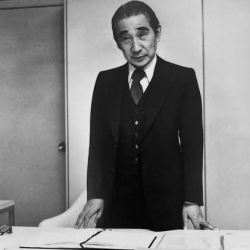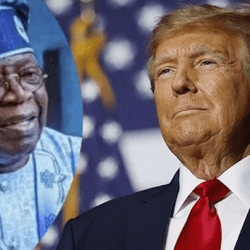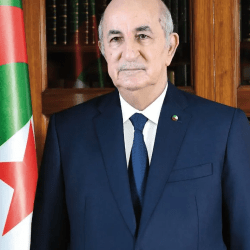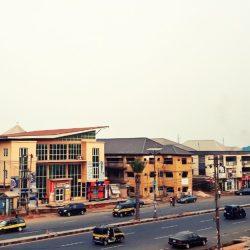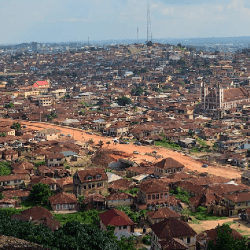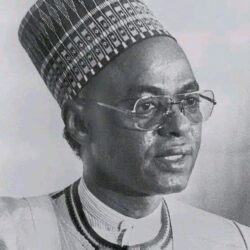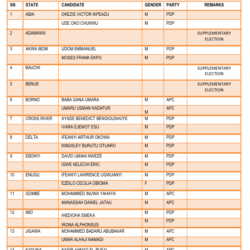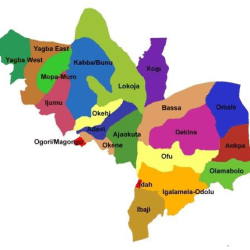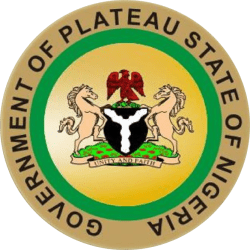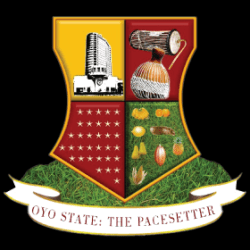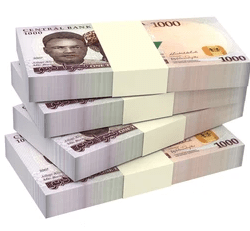Chadli Bendjedid, Algeria’s fourth president, governed from February 9, 1979, to January 11, 1992. His leadership marked a turning point in Algeria’s post-independence history, as he guided the country through economic reforms, political liberalization, and the transition to multi-party democracy. Although his presidency ended abruptly with his resignation amid a growing crisis, Bendjedid left a significant legacy as the leader who opened Algeria to political pluralism.
Early Life and Revolutionary Beginnings
Chadli Bendjedid was born on April 14, 1929, in the village of Sebaa, Bouteldja, in El Tarf Province. From a young age, he was immersed in the nationalist movement that sought independence from French colonial rule.
He studied at the Rahbat El Qamh School, an institution known for producing influential leaders of the Algerian independence movement. Later, he joined a vocational training center in Oued El Kouba (now Annaba) before working as an inspector at the TABACOP company.
However, Bendjedid’s true calling was political activism and armed struggle. By early 1955, he had joined the Algerian Liberation Revolution, making him one of the early fighters of the independence war.
Military Career During the War of Independence
Before the outbreak of the November 1, 1954 Revolution, Bendjedid was already engaged in the nationalist struggle through the Movement for the Triumph of Democratic Freedoms (MTLD). His role in the armed revolution quickly expanded:
- 1955 – Appointed regiment commander.
- 1956 – Deputy head of a military region.
- 1958 – Promoted to commander of a military region.
- 1959 – Became commander of a military zone in the Northern Operations Zone, following restructuring by the General Staff under Houari Boumediene.
Bendjedid’s military discipline and leadership earned him prominence within the National Liberation Army (ALN), solidifying his position among the revolutionary elite.
Role After Independence
Following Algeria’s independence in July 1962, Bendjedid continued his military career under Colonel Houari Boumediene. He supervised six corps of the National People’s Army (ANP) entering Jijel, a strategic move in consolidating post-independence control.
He later became:
- Commander of the Sixth Military Region (later restructured into the Fifth, based in Constantine).
- Commander of the Second Military Region in Oran (1964).
By the late 1970s, Bendjedid had established himself as a trusted figure in the Algerian military hierarchy.
Rise to the Presidency
In November 1978, following Boumediene’s illness, Bendjedid was appointed Minister of Defense. After Boumediene’s death in December 1978, Algeria faced a leadership vacuum.
In February 1979, Chadli Bendjedid was chosen as President of Algeria, supported by the military establishment. His presidency represented continuity with Boumediene’s legacy but also introduced reforms that gradually reshaped Algeria’s political and economic landscape.
Political and Economic Reforms
Bendjedid’s presidency is often remembered for two major themes: economic liberalization and political pluralism.
Economic Reforms
During his time in office, he attempted to shift Algeria away from strict central planning toward more market-oriented policies, though these were met with mixed results.
The October 1988 Events and Political Liberalization
The turning point came with the October 1988 protests, sparked by social and economic grievances. Confronted with widespread unrest, Bendjedid recognized the need for political reform.
In 1989, he introduced a new constitution that:
- Abolished the one-party system dominated by the FLN.
- Allowed the creation of political parties, making Algeria the first North African country to embrace multiparty democracy.
This bold step transformed Algeria’s political landscape and earned him recognition as a pioneer of democratic reform in the region.
Resignation and Withdrawal from Politics
Despite his reforms, Algeria soon descended into crisis. The rise of Islamist political movements, particularly the Islamic Salvation Front (FIS), destabilized the political order. As tensions escalated, Bendjedid resigned on January 11, 1992, under pressure from the military.
His departure paved the way for a transitional government, but it also marked the beginning of Algeria’s “Black Decade”—a civil conflict that cost hundreds of thousands of lives.
Following his resignation, Bendjedid withdrew from political life, maintaining a low profile until his death.
Death and Burial
Chadli Bendjedid passed away on October 6, 2012, at the age of 83. His death closed the chapter on one of Algeria’s most pivotal political figures.
Legacy of Chadli Bendjedid
Chadli Bendjedid is remembered as a pragmatic reformer who oversaw Algeria’s transition from single-party rule to political pluralism.
Achievements:
- Introduced multi-party democracy in 1989.
- Attempted to modernize Algeria’s economy.
- Maintained political stability during much of his tenure.
Criticisms:
- His reforms were considered too little, too late, failing to address deep economic and social issues.
- His resignation coincided with Algeria’s descent into the civil war of the 1990s.
Nevertheless, Bendjedid’s courage in opening Algeria’s political system remains one of his defining contributions.

1. Who was Chadli Bendjedid?
Chadli Bendjedid was the fourth President of Algeria, serving from 1979 to 1992.
2. When was Chadli Bendjedid born?
He was born on April 14, 1929, in Sebaa, Bouteldja, El Tarf Province.
3. What role did Bendjedid play in Algeria’s independence?
He joined the National Liberation Army in 1955 and rose to become a commander during the war.
4. What was his biggest political achievement?
His greatest achievement was the 1989 constitution, which introduced multi-party democracy in Algeria.
5. Why did Chadli Bendjedid resign in 1992?
He resigned under pressure from the military amid rising tensions with the Islamist movement and political instability.
6. When did Chadli Bendjedid die?
He died on October 6, 2012, at the age of 83.
Chadli Bendjedid’s presidency was one of transition and transformation. While he faced criticism for failing to resolve Algeria’s deep-rooted crises, his introduction of multi-party democracy in 1989 remains a landmark moment in Algerian history.
Though his tenure ended in turmoil, Bendjedid’s legacy lies in his willingness to open the political system and pave the way for pluralism. He remains a figure of both controversy and respect—a leader who tried to balance reform with stability in a nation struggling to define its future.




